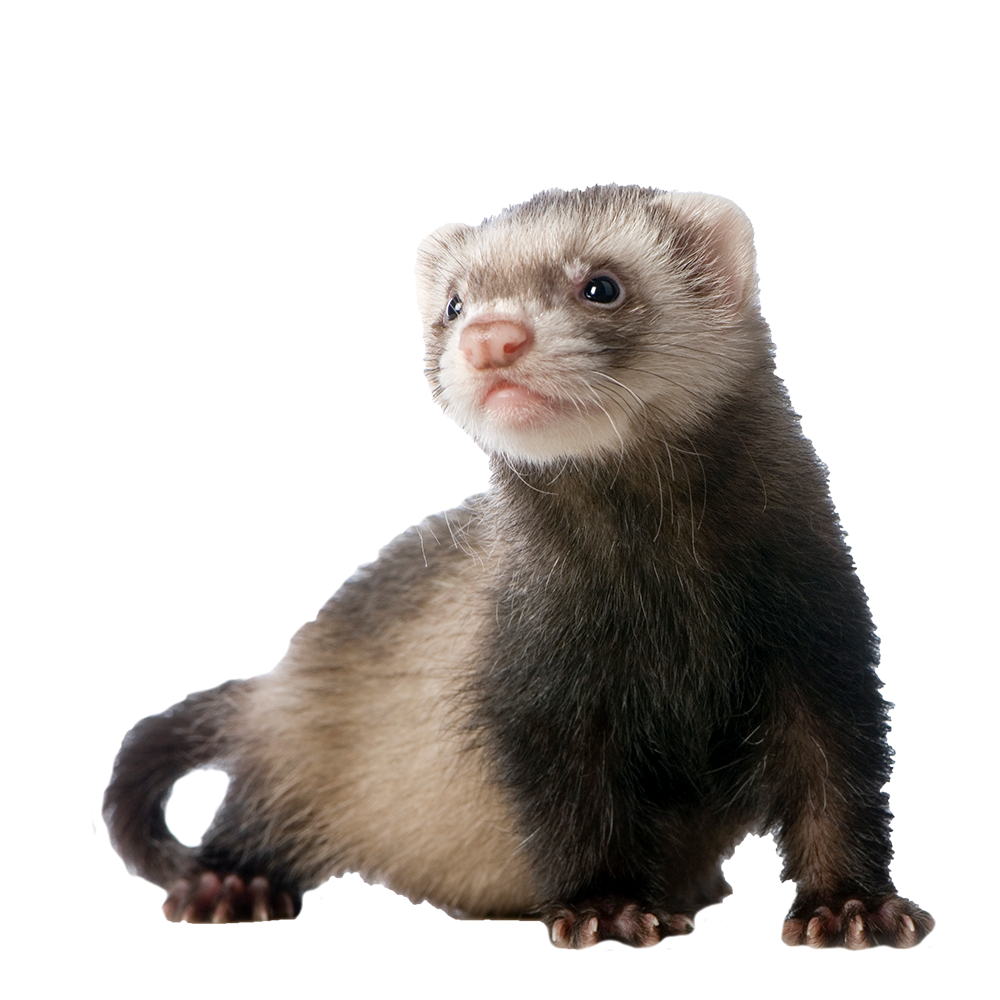To help make and keep them healthy, ferrets should receive a wellness VISIT
ONCE A YEAR.
This allows the veterinarians at Broomfield Veterinary Hospital to examine them from nose to tail, vaccinate them, and perform lab testing, if necessary.
or call us at (303) 466-1764.
A standard comprehensive wellness exam for ferrets here at Broomfield Veterinary Hospital consists of a full physical assessment. If you’re a first-time ferret owner, we’ll also discuss proper diet, grooming, and housing for your new furry friend. We may also perform laboratory diagnostic testing, such as a fecal exam, blood test, or heartworm test.

Feel free to ask us any questions you have or let us know about your concerns. Ferrets are prone to health issues, just like any other animal. The following are some of the signs that indicate a problem:
- Change in appetite
- A hunched appearance
- Hair loss
- Nasal or eye discharge
- Difficulty urinating
- Abnormal breathing
- Lethargic or sluggish behavior
Caring for Your Ferret at Home
Although bringing your ferret in for a comprehensive wellness exam is important, it’s only one day out of the year. For the other days, it’s up to you to maintain their health. Here are some of the most important components to consider when owning a ferret:
Ferrets require a diet that consists of 30-40% animal protein, 15-20% of fat, and 2% of fiber in the form of a high-quality ferret kibble, such as ZuPreem Premium Diet (no corn), Wysop, or Mazuri Ferret. You can also feed your ferret small amounts of fish, cooked meat, and poultry as treats every now and then.
We recommend that all ferrets be vaccinated against rabies and ferret distemper.
Your ferret’s cage should be spacious and well-ventilated with a hard, solid floor. The gaps should be small enough to prevent your fur baby from escaping. For your ferret’s comfort, the enclosure should be kept out of direct sunlight, drafts, and areas that are damp or cold.
For the interior of your ferret’s enclosure, there should be plenty of soft, comfortable blankets or similar bedding material. It should be absorbent, non-toxic, dust-free, and kept clean. You should also check the bedding regularly to ensure your ferret isn’t chewing/eating it.
If your ferret is litter trained, place the litter pan in the corner of the cage with non-toxic, absorbent ferret litter. You can also place a pan or two outside of the enclosure, if you let your ferret roam for extended periods of time. Just remember to keep it clean by scooping it daily and replacing the litter weekly.
Your ferret’s cage should be well-ventilated, spacious, and multi-leveled with a solid floor. It should be kept away from direct sunlight, drafts, and areas that are cold or damp. The gaps in the cage should be small enough to prevent your ferret from escaping.
If you plan to let your ferret roam your home, make sure your home is safe for them to do so. Block their access to any holes or spaces that are larger than 2” x 2.” You should also ensure there aren’t any small items lying around that they might ingest, such as rubber bands, headphones, or charging cords.
Your ferret should receive daily, supervised exercise for at least two hours a day. Provide them with ferret-safe toys to keep them entertained and active.
We’ll be happy to discuss these topics with you more in detail at your next visit.


